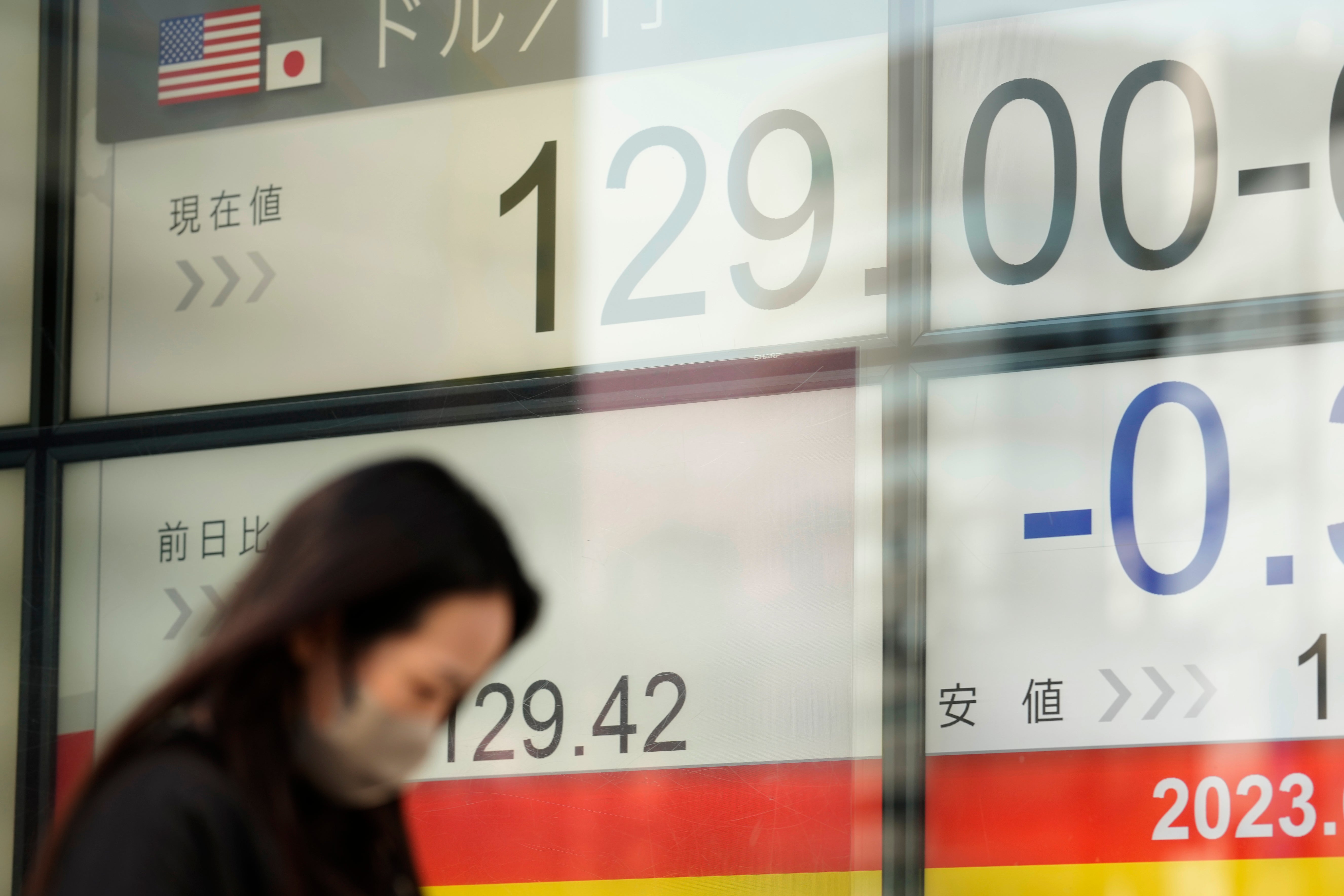Alarm as inflation in Japan hits 4% for first time since 1981
Japan’s inflation levels remain much lower than other G7 economies but energy prices are driving cost of living up

Your support helps us to tell the story
From reproductive rights to climate change to Big Tech, The Independent is on the ground when the story is developing. Whether it's investigating the financials of Elon Musk's pro-Trump PAC or producing our latest documentary, 'The A Word', which shines a light on the American women fighting for reproductive rights, we know how important it is to parse out the facts from the messaging.
At such a critical moment in US history, we need reporters on the ground. Your donation allows us to keep sending journalists to speak to both sides of the story.
The Independent is trusted by Americans across the entire political spectrum. And unlike many other quality news outlets, we choose not to lock Americans out of our reporting and analysis with paywalls. We believe quality journalism should be available to everyone, paid for by those who can afford it.
Your support makes all the difference.Japan’s inflation has risen by 4 per cent in December from a year earlier, according to the latest data, hitting a fresh 41-year high and increasing pressure on the central bank of the world’s third-largest economy to increase near-zero interest rates.
The data released on Friday showed Japan’s core inflation, which includes the long-term trends in the price levels of goods and services, reached its fastest pace since December 1981, double the central bank’s 2 per cent target.
This was the ninth month in a row that core inflation has been above the central bank’s target.
The historic inflation levels may push the Bank Of Japan (BOJ) to increase its ultra-low interest rate – the cost of borrowing money – in line with market expectations, analysts say. However, there’s uncertainty on whether the increase will take place this year.
The figures add to concerns over the rising cost of living in the country which had largely managed to keep inflation low despite the coronavirus pandemic and soaring energy prices following the invasion of Ukraine by Russia.
The increase in December comes with energy prices as the main driver as businesses pass on the rising cost of importing and manufacturing goods to consumers amid a global energy crisis.
Japan’s inflation levels remain much lower than other G7 economies, mainly due to state controls that can limit price rises. In the US, inflation stood at 6.5 per cent in December and in the UK inflation stands at 10.5 per cent.
The BOJ has kept the interest rates close to zero for six years, in order to make borrowing easier and boost consumer spending.
Investors have been expecting an increase in rates, like many other countries that have raised interest rates sharply over the last year. But the BOJ surprised markets once again this week by announcing that it would keep rates near zero.
Recent data has been showing an upward trend in the cost of everything from food to fuel in the world’s third-largest economy.
“Supply shock is behind the recent pick-up in inflation,” Yasunari Ueno, chief market economist at Mizuho Securities, was quoted by Reuters news agency as saying.
“It’s therefore hard to see the BOJ raising its policy rate even under a new governor and deputy governor,” who will assume their posts in April and March, respectively, he said.
Analysts are also warning that inflation can rise further in January and stay above 2 per cent in autumn, with BOJ expecting to maintain lower rates until wages rise.
“Companies aren’t that cautious about raising prices anymore. We might see inflation stay above the BOJ’s 2% target well into autumn this year,” Yoshiki Shinke, chief economist at Dai-ichi Life Research Institute told Reuters.
“But wages are key. If inflation stays around 2% and Japan sees significant wage hikes, the BOJ could normalise monetary policy. If it deems the pace of wage hike as insufficient, there’s an equal chance it will stand pat,” he said.



Join our commenting forum
Join thought-provoking conversations, follow other Independent readers and see their replies
Comments